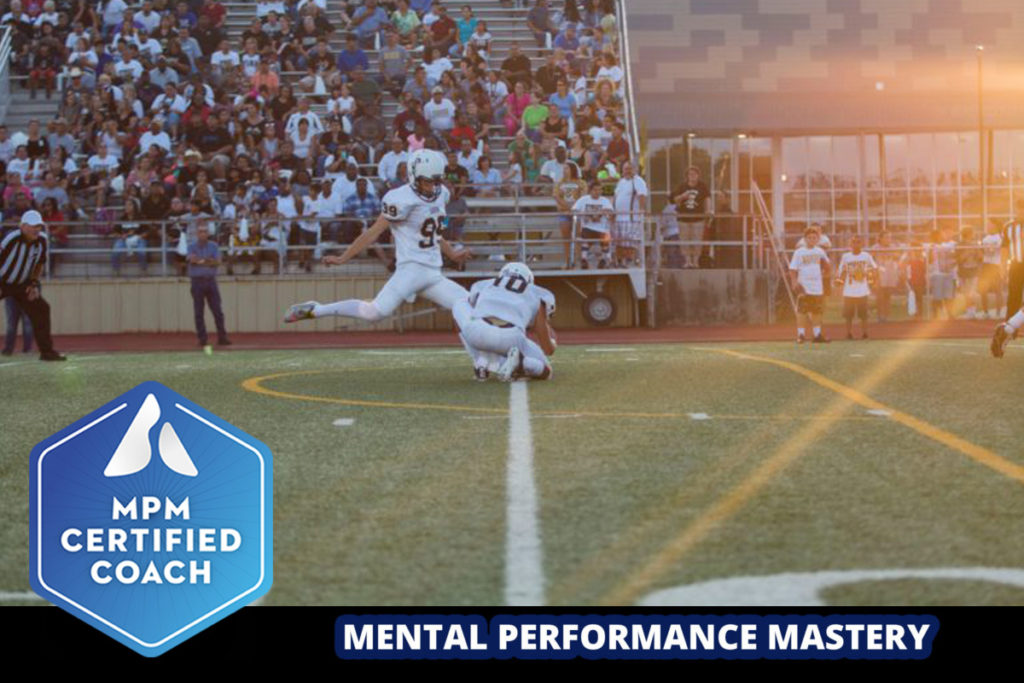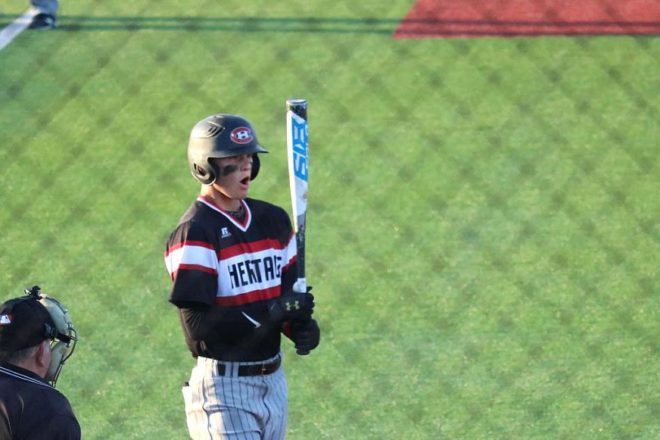
Get this FREE MiniCourse to help your athletes perform their best, overcome any obstacle, and stay focused under pressure.
When I was first getting into the field of mental performance nearly 20 years ago, if someone would have told me I’d eventually become known as an expert in the industry and build a million-dollar business, I’d have thought they were crazy.
And while the trend these days would be to talk all about how I did it on my own, how no one believed in me and I had to pave the way by my lonesome… that wouldn’t necessarily paint an accurate portrayal of what happened.
Now, of course, I worked my ass off to get where I am. Of course, I had to push through hard times, and there are certainly were times when I felt alone.
But the fact is, I had the help of some incredible mentors along the way. People who believed in me when I didn’t. People who guided me when I wasn’t sure what direction to go. People who answered the tough questions.
That’s why “paying it forward” has always been something I firmly believe in, and something I make an effort to do as often as possible.
A few weeks ago, I asked the coaches in my Mental Performance Mastery Coaching Certification (which may include YOU) to share questions they have about mental performance coaching.
Today, I want to share answers to the top three questions I received.
Whether you’re still wondering if this whole mental performance thing is worth it, or you’ve dived in headfirst and you’re trying to figure out what to do next, I think you will find some real value in the questions and answers below.
Question #1: I have several athletes who practice awesome, but get so tense in games. What can I do to help them relax and perform up to their TRUE potential during competition?
I receive this question — or a close variation of this question — nearly every single day.
Which makes sense, because this is certainly one of the most common and debilitating challenges those we coach face.
Nothing is more frustrating than having an athlete who is clearly loaded with talent and skill… fall apart when the lights come on and the game is on the line. It’s something equally challenging for a coach or for the individual experiencing it.
First, a few general remarks regarding this type of situation, and then some specific, targeted advice for helping an athlete overcome this struggle.
To even have a shot at helping an athlete overcome the fear/anxiety of competition and perform better, you absolutely have to make sure that you AND the athlete in question are approaching the situation from a growth mindset perspective.
Growth vs. fixed mindset is something I’ve talked about before, and something I go into extensively inside the MPM Cert, but for the sake of this conversation, here’s what you need to know:
An athlete who struggles with performing up to their potential during games CAN improve and learn how to say in control of themselves in pressure situations with practice.
So instead of looking at this as some type of mental toughness they either “have or they don’t”, view it as a skill that can be acquired — and make sure they have a similar view of the situation by clearly communicating this to them.
Now for my go-to “strategy” to train an athlete’s ability to stay calm and in control of themselves under pressure, specifically in preparation for competition.
One of the best ways to build confidence (and overcome pre-game jitters) is through what I call mental imagery.
Teach your athletes that everything happens twice: first in your mind — then in reality.
Mental imagery is playing the highlight video of your best performance either from the past or in the future in the movie theater of your mind. Seeing yourself play the way you want to play, whether it’s reliving previous examples and experiences that you’ve actually had, or vision casting to the future to see yourself play exactly how you want to play is what we call mental imagery.
This can and should be done immediately prior to competition/games AND on a daily basis. I often have athletes perform mental imagery before they go to bed each night for less than 10 minutes in addition to being part of their pre-game routine.
Now, I get that this type of thing often gets written off as some woo-woo “in the clouds” nonsense.
But I assure that with commitment and practice, mental imagery works.
I’ve seen it work time and time again with world-champion MMA fighters and professional athletes in other sports before they step out to perform in front of MILLIONS of people on the world’s biggest stage.
So rest assured it can work for you and those you coach as well.

Question #2: What’s ONE mental performance strategy I can use that will have a big, immediate payoff?
Seriously, I have to pick just ONE? Kidding aside, I appreciate this type of question because it gives a nod to the fact that coaches are BUSY.
I get that. And you want to make sure you’re putting time, energy, and effort to what’s going to have the biggest payoff.
And while I firmly believe continually investing time into coaching mental performance is absolutely worth it, if I had to give you ONE thing to start with, it would be this…
The place where you can get the greatest competitive advantage is with your time. I had an athlete tell me once that she doesn’t wear a watch because the time was always now. I liked that, but then she was also late to every meeting we had scheduled. LOL.
If you want to get the most out of yourself, you must become a savage of time. Why? Because there is one factor that is the same for you, your teammates, and everyone else in the world that wants your success… that one factor that’s the same is TIME.
It’s not facilities. It’s not coaches. It’s not training plans. It’s not if you have Nike or Under Armour. It’s not your size or your strength or the genes that you were given.
It’s TIME.
That’s why I always teach those I work with to plan tomorrow TONIGHT. When you wake up and simply react to the day, you’ll find you rarely have time to do the things you want and need to do.
But if you can sit down each evening and PLAN tomorrow, carving out specific time for when you will do the things most important to you and your goals, those things tend to get done.
For yourself and for those you coach, teach them how to value their time. Teach them how to sit down each night and plan out the next day in detail. When will they get their extra skill work in? When will they hit the weights and do conditioning?
By planning these things and setting aside time BEFORE the chaos of the day hits, you increase the chances of them actually getting done.
Question #3: How important — really — is this mental performance stuff?
This is another question that stands out because I see an effort to get to the heart of what really matters. You want to get those you coach the best results possible. And you’re not interested in dabbling in anything that won’t help you do just that.
Listen, I offer no apologies in making the claim that mental performance mastery is the missing link in athletic performance.
Simply working harder on the physical attributes of athletics won’t cut it. Sports are 90% mental, but most work on their mental game less than 10% of the time.
So to answer this question… if you want to be the best coach or athlete you can possibly be, learning how to master and teach the mental skills needed for long-term success is downright crucial.
Look, if you want more, you have to BECOME MORE. You become more by doing the right training to develop the right mindset with a coach who has been there and done that so that you can learn from their expertise.
That’s why I do what I do. I wake up every day FIRED UP to teach others about mental performance because I’ve experienced the impact it has personally, and I’ve seen it transform the lives and athletic performance of thousands of coaches and athletes I’ve worked with.
But just like any other aspect of performance, results will only be seen when you intentionally and consistently focusing on developing mental performance.
If you do that, I guarantee it will be worth your time, and you WILL see real, measurable impact for yourself and those who call you “coach.”
YOUR NEXT MOVE: IF YOU WANT TO TAKE YOUR COACHING TO THE NEXT LEVEL, YOU NEED TO MASTER THE MENTAL SIDE OF PERFORMANCE
Knowing the what, when, and how of coaching mental performance—and trying to fit all of the pieces together on your own—can be burdensome.
That’s why I created the Mental Performance Mastery (MPM) Coaching Certification. Inside the MPM Certification, I’ll teach everything you need to add this crucial skill set to your coaching toolbox.
You will learn how to help your athletes and clients overcome mental barriers that trip them up and build the habits, mindset, and behaviors they need to be at their best when it matters most.
Not only will you develop a deep knowledge of the ten most valuable mental skills needed for mental performance mastery, but you’ll also have a proven method for consistently and predictably developing these skills in those you coach.
The MPM Certification will open to new students for a limited time only twice a year (May and November). Join the free Insider’s List below to save $200 on the certification and be the first to know when it goes live.

